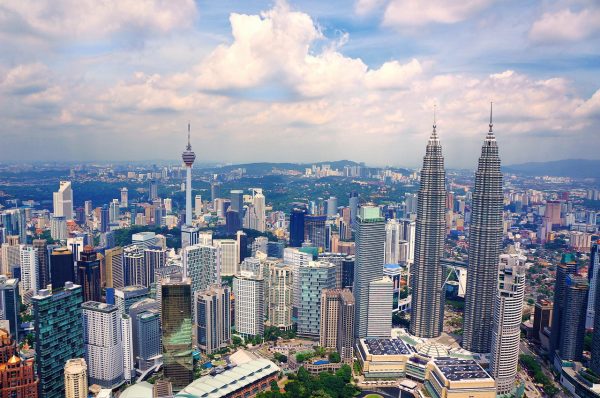KUALA LUMPUR, 9 June 2020: Malaysia will encourage domestic travel between states using a travel bubble or corridor strategy possibly starting with Penang island that is already talking to neighbouring mainland states to establish “green channels.”
A Malaysian Association of Hotels (MAH) mini-survey based on 402 questionnaires completed by member hotels suggested hotels in Perak, Pahang, Terengganu and Kelantan had the most potential to pick up domestic bookings once travel opens up.

The states are already leaders in the domestic hotel booking market, with more than 70% of the guests are domestic travellers.
“Domestic guests command 55% of market share traditionally in Malaysia overall, with the states of Perak, Pahang, Terengganu and Kelantan highly dependent on the domestic market. This could also indicate an earlier recovery for these states once interstate travel is allowed,”
Malaysia Association of Hotels Association chief executive officer Yap Lip Seng warned that hotels on the tourist island of Langkawi and Sabah, East Malaysia, would lag behind in recovery as they depend on international tourists.
He claimed that only 34% of hotel guests in Langkawi were sourced domestically while local guests represented just 40% of the occupancy in Sabah.
However, Just two days after the announcement of the “Penjana” Economic Plan, the hotels association said the announcement gives us “hope as we enter “Recovery Movement Control Order” commencing 10 June through to 31 August 2020.”
The Recovery MCO will see interstate travel being eased, as well as meetings and workshops provided that strict standard operating procedures (SOPs) are adhered to.
The announcement today is significant for the tourism industry, and it signals the beginning of the recovery of domestic tourism, the lifeline of the industry in the midst of the Covid-19 pandemic. Tourism stakeholders had long prepared for this day to come, particularly the hotel industry with its very own guidelines to ensure a clean & safe stay for tourists and guests alike.
Malaysian Association of Hotels published its base guidelines for hotels on 1 May 2020, to guide hotels into the new norm of hotel operations, benchmarked against Ministry of Health’s requirements and best practices from other countries and major hotel chains around the world.
“Malaysian hotels are ready to receive and serve guests, SOPs had always been part and parcel of hotel operations. In a recent survey we conducted, out of 402 hotels responded, we recorded 96% adoption of SOPs in reference to safety, health and hygiene practices for Covid-19, with the balance minority awaiting reopening of operations,” said the MAH Chief Executive Officer.
MAH’s survey also reported a slow but consistent pickup of onward demand or hotel bookings for the coming months. Overall, hotels responded with demand recorded for quarter three and four of 2020 indicating people’s need to travel and that they had taken advantage of promotions and packages hotels had likely introduced in advance. Steady demand is also seen for the year 2021, signalling confidence in the recovery and the new norm as part of travel.
Specifically, Kedah (mainland), Perak, Johor, Pahang & Kelantan is expecting short term or immediate bookings while Langkawi and Negeri Sembilan are looking at year-end increased interest. Terengganu, Selangor, Kuala Lumpur and Sarawak, on the other hand, saw bookings recorded consistently for quarter three and four later this year, while Penang, Melaka and Sabah are looking at steady demand growth till quarter one the year 2021.
According to Yap, although in general hotels are investing and spending more in compliance to SOPs, the public will not accept higher costs for hotel stays as there are many attractive packages and promotions made directly from the hotels’ websites.
“With the industry moving into the first stage of recovery (domestic tourism), we need to plan ahead for when the international inbound market reopens. This will involve concerted efforts to market and promote Malaysia by both the private sector and the Government, hand in hand,” Yap added.
Earlier MAH issued a statement to urge Malaysia to take the lead in ASEAN tourism.
“The idea of ASEAN as ONE is not new, and this could just be the right timing to embark on it. MAH presented the idea to the Ministry of Tourism, Arts and Culture in an engagement meeting previously. It also suggested preparation for the next two major markets, China and India.”
(Source: MAH)







